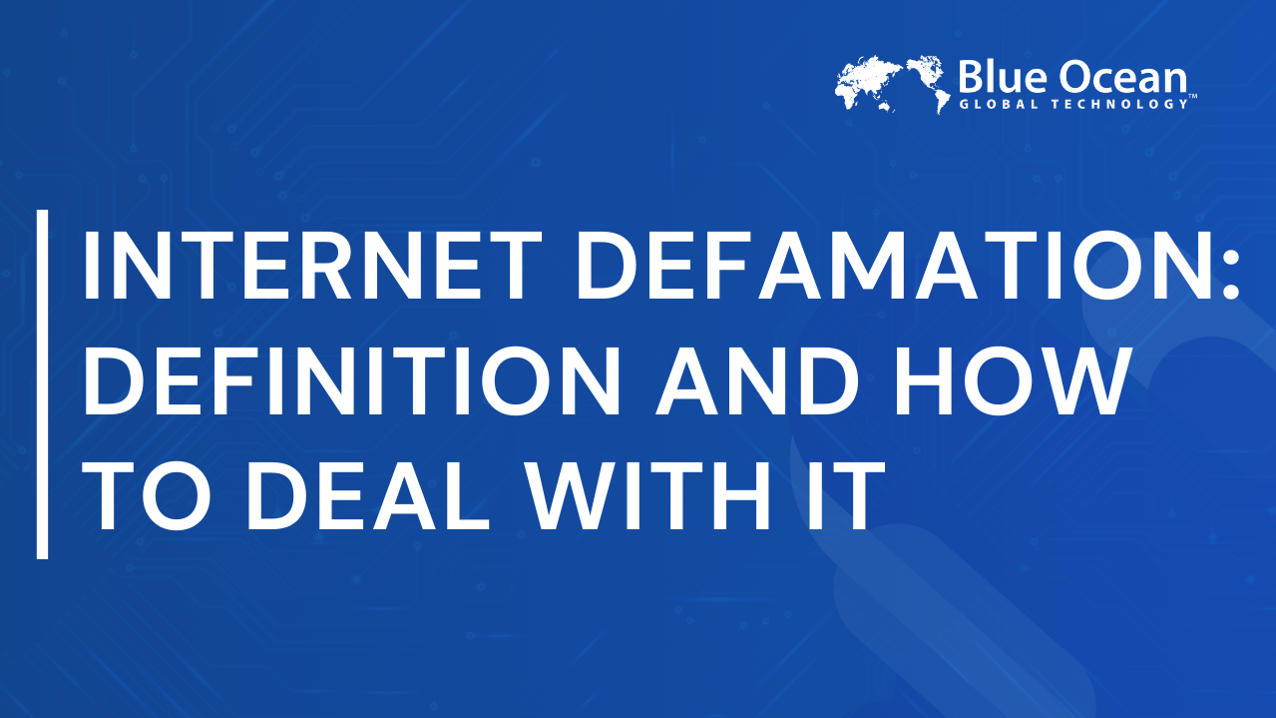Overview
- Internet defamation happens when a false defamatory statement is made online that hurts a person’s or a business’s reputation.
- Online defamation damages include reputational, emotional, and economic harm.
- If you are a victim of defamation, preserve all evidence, register the impact, report the content, and seek legal advice.
There is no questioning the fact that the Internet revolutionized how people interact. It enabled individuals all over the world to engage and reduced barriers. But it also cleared the way for defamation. Sharing defamatory posts can then lead to harm to various aspects of one’s personal and business life. Legal support in cases like these is very important in order to mitigate and compensate for the damages. It is necessary to note that freedom of speech does not encompass sharing defamatory posts online. Defamation lawsuits do not attempt to silence the truth, but to silence the misuse of the freedom of speech.
In this article, we explain internet defamation, the consequences, the first steps you should take, and rebuilding your reputation.
What Is Internet Defamation?
Internet defamation is the publication of a defamatory statement made online that hurts a person’s or a business’s reputation. It is also known as online defamation and cyber-libel.
Image Credits: Freepik
Elements of Internet Defamation
In a defamation case, the plaintiff has to prove certain elements. The most important one is that the statement has to be false. If a statement is true or an opinion, it is not considered defamatory. The statement must also be shared with someone or published somewhere, meaning it reaches more people than the plaintiff and the defendant. The plaintiff must have suffered reputation damage and be able to prove this in court. This can be done through interviews with people close to them, and financial and medical records. Anything showing how their lives changed after the publication of the online statement can be relevant. Finally, the plaintiff must prove the defendant acted with actual malice or negligence. Actual malice is when the defendant knew the statement was false or acted with reckless disregard for the truth. Negligence means the defendant lacked reasonable care in avoiding the publication of the false statement.
Examples of Internet Defamation
Here are a few examples of Internet defamation:
- Spreading false statements about a person, including drug use and infidelity, on social media platforms such as Twitter, Facebook, or TikTok.
- Accusing someone of being a criminal or of being involved in criminal activity.
- Reviewing and giving a low rating to a product on websites, such as Google Business and Yelp, without even using it.
- Publishing false accusations about someone’s professional conduct.
- Sharing malicious content anonymously.
- Creating websites to share false and malicious information about someone.
What Are the Consequences of Internet Defamation?
As online defamatory statements spread rapidly and reach a larger audience, their consequences are even more extreme than traditional defamation. A single post can be shared and viewed by millions of people all over the world in just a few minutes. Once something is posted online, even if it is deleted seconds later, the damage is already done. Damages caused by internet defamation include reputational, emotional, and economic harm.
Image Credits: Freepik
Reputational Harm
Reputational harm refers to the loss of the standing of a person or a business. It negatively impacts their relationship with others, including family, friends, consumers, and business partners.
Emotional Distress
Emotional distress includes anxiety, humiliation, depression, irritability, and loss of sleep. It is important that this psychological harm can be proved through testimonies and medical records.
Economic Harm
Following a defamatory statement, a person or a business may suffer from severe economic harm. This includes lost profits, lost revenues, and any other monetary losses after the publication of the statement. Companies may never recover financially, even if the claims are proven to be false later. Demonstrating and calculating the extent of the damage caused by online defamation is crucial to helping courts address it. That is why most defamation cases have an expert witness to assess damages.
What to Do if Someone Is Defaming You on the Internet?
If you have been a victim of online defamation, there are a few initial steps you should take. These will help you limit the damages, but also be able to prove it and preserve your rights.
Preserve All Evidence
As posts can get deleted and edited, it is crucial to take screenshots of all the defamatory statements. Be sure they include the date, time, and the person who published it. There is no need to worry if the post was made anonymously, as you can still sue with a lawyer’s help. Preserving all evidence is a crucial step if you want to proceed in court.
Image Credits: Freepik
Report the Content
Some platforms and websites may delete the post if it violates their Terms of Service. Reporting the defamatory content to the platform can be a faster and simpler way to have it deleted. If you have to take it to court later, it also serves as evidence.
Register the Impact
In addition to taking screenshots of the post, remember to document how many people the post reached. The number of “likes”, shares, and comments is a good way to show that. If anyone reaches you about the defamatory posts and attacks you, be sure to preserve that too.
Seek Legal Advice
Don’t wait too long to get legal advice. Meeting with a lawyer to advise you of the next course of action and your rights is important in minimizing your damages.
Dealing with online defamation?
We are here to guide and help you with every step on the way. Contact us today!
Rebuilding Your Online Reputation
Internet defamation can significantly tarnish someone’s reputation. Beyond reputational damage, it can harm one’s physical and mental health, relationships within the community, and credibility as a professional.
In these situations, rebuilding your online reputation should be a priority. This process, known as online reputation management, aims to amplify positive content and address negative information that might be online.
To build a strong and positive online presence, setting and maintaining active profiles on various platforms relevant to your case is crucial. Regularly updating those platforms with new content and engaging with the audience is also a key point.
Search Engine Optimization plays an important role in rebuilding your online reputation by helping achieve the desired results. Reverse SEO is also an option, as it suppresses harmful content by pushing it down in the search engine.
To be effective, there has to be continuous monitoring of these platforms. Working with experts who track what others say about you online can help keep things under observation more easily. By monitoring your profiles, you can quickly act if a defamatory post appears online.
Conclusion
Being a victim of internet defamation can have lasting consequences on a person’s reputation. Additionally, it causes economic loss and emotional damage. In cases like these, it is advisable to act immediately upon discovering the defamatory statements. Although it seems complicated, there are means to remove the defamatory post, claim damages, and repair your online image. Taking important steps immediately will assist you in recovering your reputation and letting your online presence accurately reflect the real you.
Frequently Asked Questions
1. Is internet defamation illegal?
Yes, it is illegal. However, to be considered internet defamation, a statement has to meet a few requirements. The statement must be false, shared with others, caused reputational harm, and made with actual malice or negligence.
2. Can you sue someone who is talking about you on the internet?
That depends on what the statement refers to. If the statement is true or just an opinion, you can not sue someone for that, even if it is bad for your reputation. But if the statement is false, you can likely sue someone for spreading negative information about you online. Look for legal counseling to verify if your case meets all the requirements of an online defamation case.
3. What to do if someone posts something false about you online?
If you have been a victim of online defamation, you must preserve all evidence with screenshots. Register the defamatory post’s reach by how many individuals had a view of it. To get the post removed immediately, you can report it to the website and request them to remove it. If that fails and you wish to keep your rights and recover damages, seek legal counsel.
If you are facing internet defamation, reach out to us.
Our qualified team of professionals can help you assess and solve all defamation matters for you or your business.
















